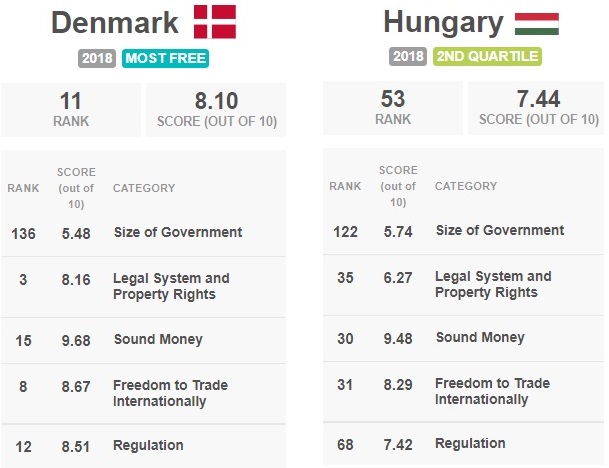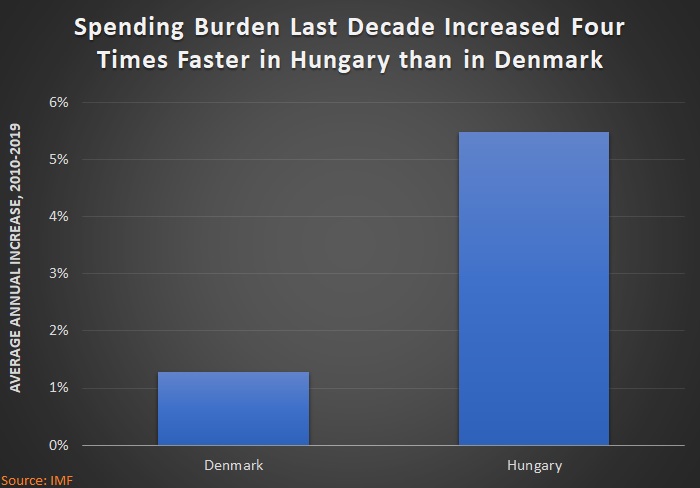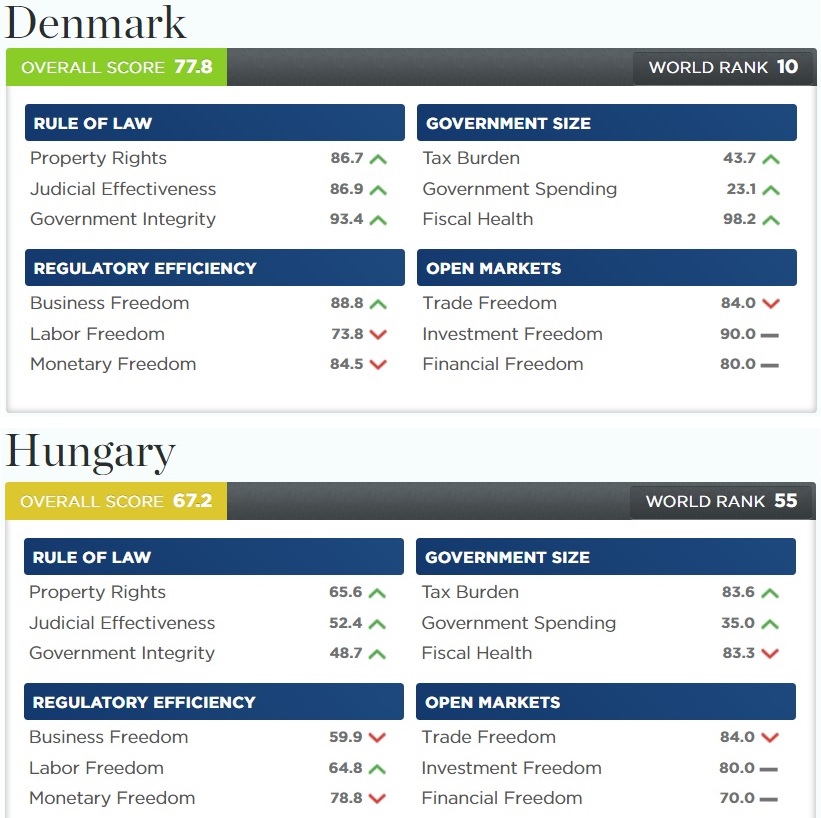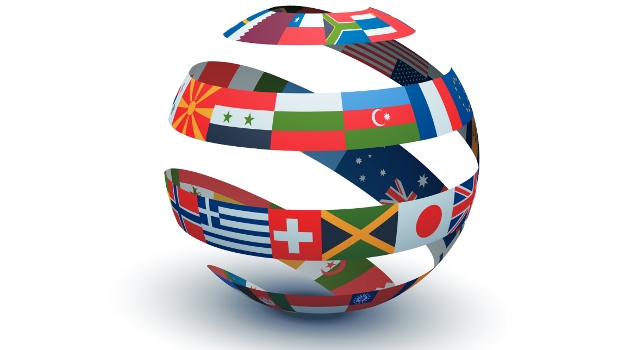I’m a big believer in focusing on results rather than reputation or rhetoric. For instance, many Republican politicians talk a good game about spending restraint. But when you crunch the numbers, it turns out that they often increase spending even faster than Democrats.
What’s true about politicians (the gap between reputation and reality) can also be true about countries.
Folks on the left seem to think Denmark is a big-government paradise, while many people on the right now think Hungary is a beacon of freedom.
But if you look at the data from the latest edition of Economic Freedom of the World, it turns out the Denmark (#11) ranks much higher for economic liberty than Hungary (#53).

Veronique de Rugy of the Mercatus Center wrote an interesting article for Reason about the strange way that some Americans have decided to embrace the two nations.
Yet she explains Denmark is hardly a socialist role model.
Sen. Bernie Sanders (I–Vt.) on the left and Fox News host Tucker Carlson on the right…have recently pointed to pet foreign countries as exemplars of what America should strive to be. Yet Sanders and Carlson are each misled by a superficial understanding of what these countries are really about. …Let’s look more closely at Denmark: Yes, the country has some big government policies… That said, not only is Denmark more economically free than it is socialist, but the country has also spent the last 30 years running away from the socialism that Sanders wants the United States to run toward.
And she notes that Hungary is hardly a hotbed of laissez-faire policy.
Orban…has created a patronage economy where licenses and aid are handed to businesses that are friendly to his administration. He even passed a law that gives the state considerable control over churches and other religious institutions. …these policies…could backfire spectacularly on these conservatives. Once the limits on state power are gone, if the progressive left truly gets into power, it will have a much easier time implementing the very agenda that these conservatives fear the most. …I wonder what we are to make of these conservatives who have become the biggest cheerleaders for many progressive spending programs.
Since Veronique mentioned government spending, I decided to peruse the IMF’s World Economic Outlook Database to see whether Hungary’s right-leaning government has adopted right-leaning spending policies during Viktor Orban’s time in power.
Compared to Denmark, the answer is no. As you can see from the chart, nominal spending has increased four times faster in Hungary.

By the way, inflation was higher in Hungary during the period, but a comparison based on inflation-adjusted numbers would make Denmark’s performance look even better since there was almost no “real” growth in the burden of spending last decade (yes, Denmark has followed my Golden Rule).
For what it’s worth, the goal of today’s column is not to denigrate Hungary, which has some very attractive policies (such as a 9 percent corporate tax rate).
And I also like that Hungary resists the pro-centralization, pro-harmonization ideology of the European Union (I especially hope that Hungary will block the EU from embracing Biden’s awful proposal for a global corporate minimum tax).
That being said, I’m not going to laud Hungary as a role model when it should be (and could be) doing a much better job of limiting the size and scope of government.
Let’s close by also seeing how Denmark compares to Hungary in the latest edition of the Heritage Foundation’s Index of Economic Freedom. As you can see, Denmark (#10) does much better than Hungary (#55).

P.S. Supporters can argue, with some merit, that it’s not completely fair to compare Denmark and Hungary because the latter is still hamstrung by having to overcome decades of communist tyranny. But it’s worth noting that other nations that emerged from Soviet enslavement, such as Georgia and the Baltic countries, have managed to achieve much higher levels of economic freedom.
———
Image credit: Pixy.org | CC0 Public Domain.


